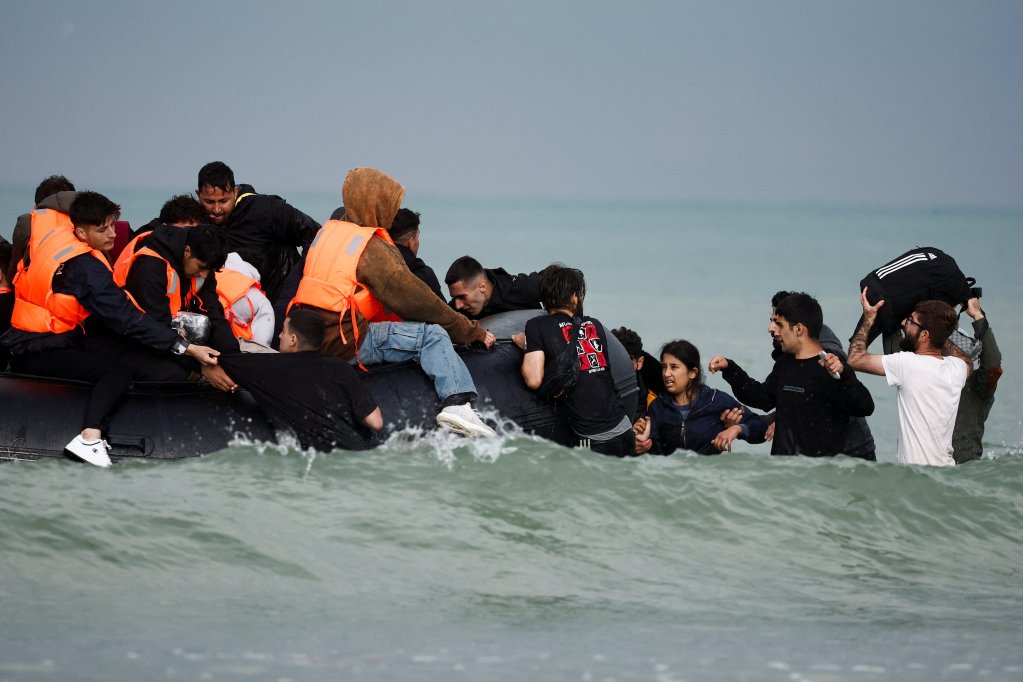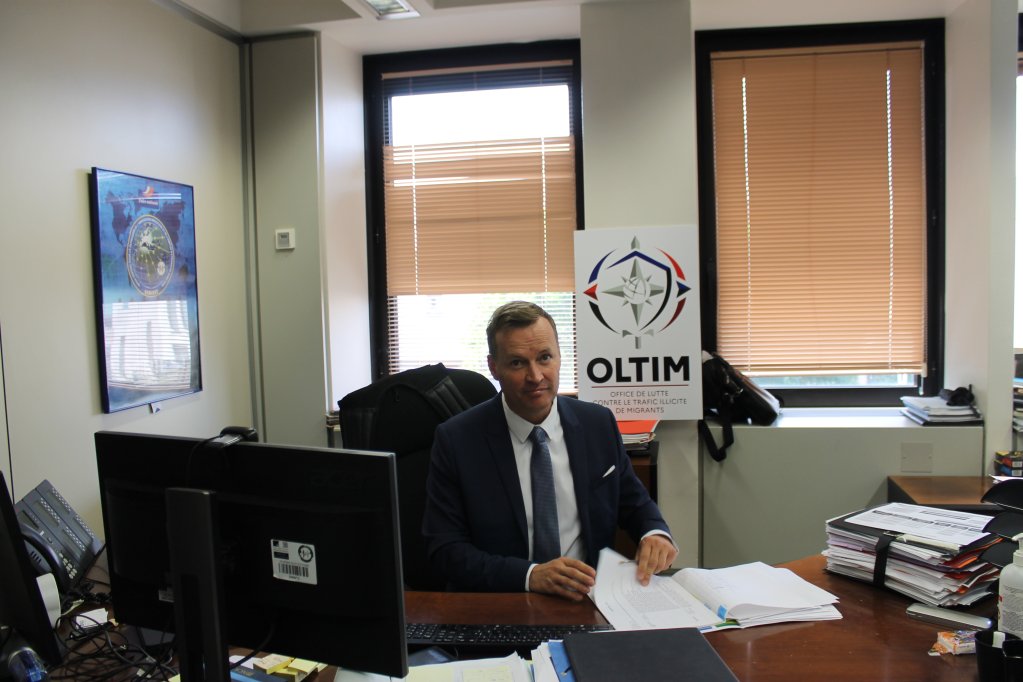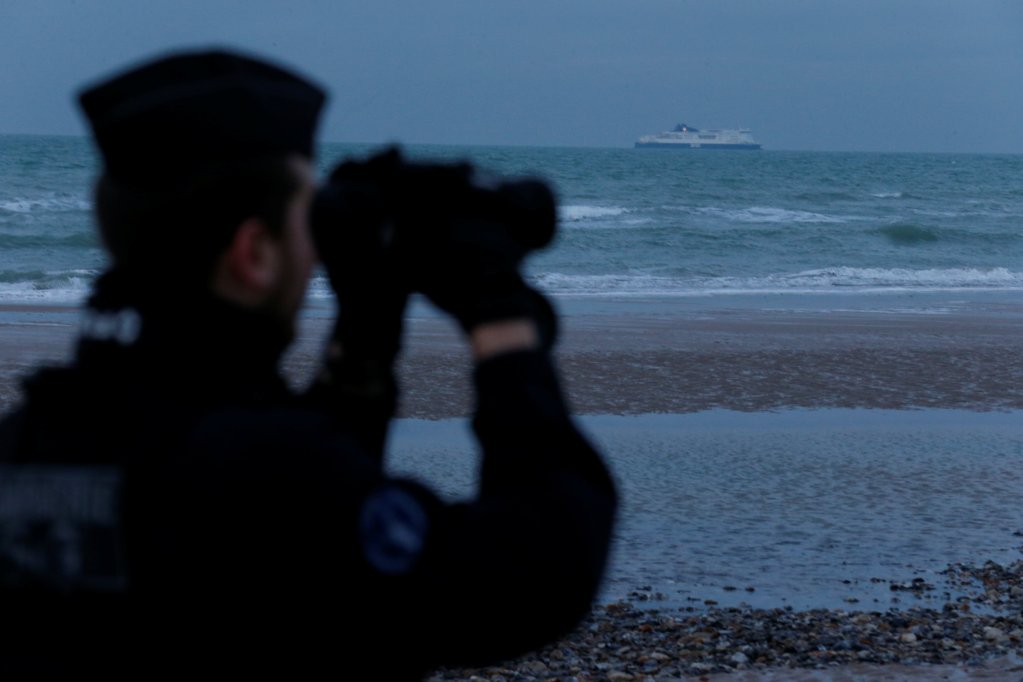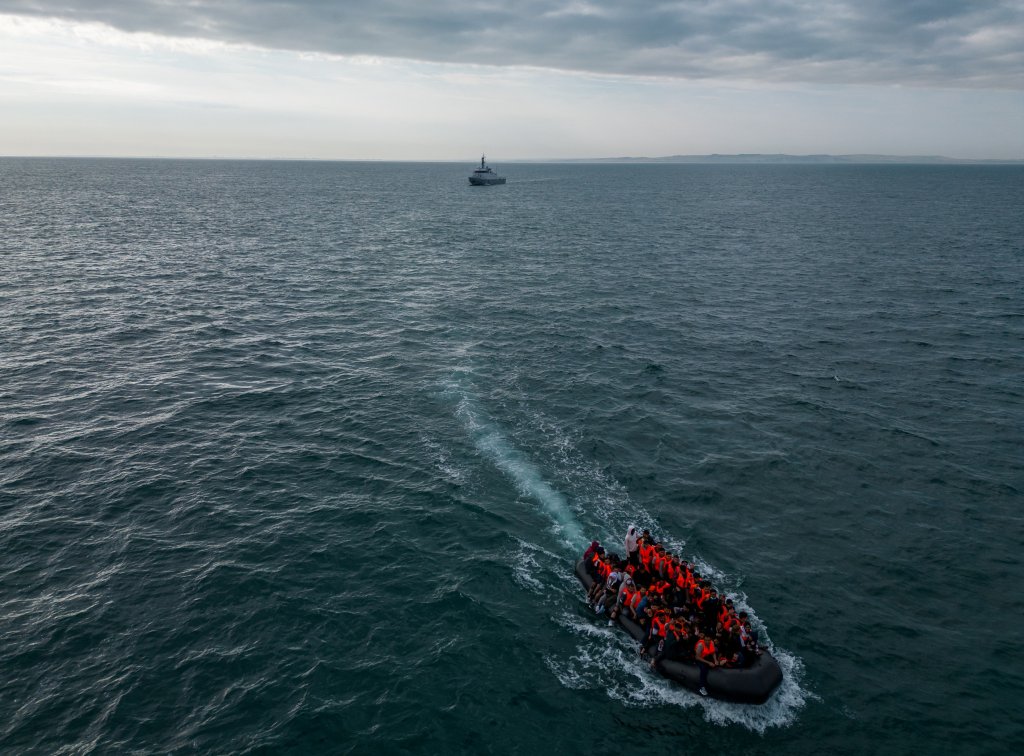To avoid interceptions by law enforcement, smugglers are asking migrants to take more and more risks while crossing the Channel, and its proving deadly. The authorities sometimes seem overwhelmed by the scale of the phenomenon. InfoMigrants was able to collect their rare testimonies.
With more than 60 deaths since January, this year is shaping up to be by far the deadliest year for migrants in the Channel. In northern France, not a week goes by without a new migrant shipwreck. Since the beginning of the year, at least 63 people have died trying to reach the United Kingdom in "small boats", these makeshift craft on which smugglers now tend to cram up to 80 passengers per crossing.
Today, "shipwrecks have almost become normal for us", a police source told InfoMigrants. Several factors explain this increase in deaths, including the evolution of smugglers' methods. To escape the ever larger number of police and gendarmes on the beaches of northern France, traffickers make migrants take more risks.
Previously buried in the sand, nautical equipment now arrives at the last minute on the coast, transported by convoys of vehicles from Germany. This complicates the task of the police. The phenomenon of "taxi-boats" has also considerably changed the situation. The smugglers go up the region's rivers and pick up their passengers directly on sandbanks, where law enforcement is no longer supposed to intervene, according to maritime law.
Before, drowning was the main cause of death. Today, the risks are multiple. In early October, a two-year-old child died of suffocation in an overloaded dinghy that had broken up off the coast. "It's become crazy. When I left my post, we had migrants attacking the boats [to get on them] when they were being launched," Maxime*, a former police officer specializing in the fight against migrant trafficking, told InfoMigrants.

Faced with this increasingly harsh reality, police officers and gendarmes dedicated to the fight against irregular immigration sometimes seem discouraged: "It's a feeling of frustration and helplessness," Marc Musiol, a border police officer said. “Once the migrants are on board [the boats], what can we do? I've already heard on the radio officers saying they were going to swim to retrieve children." Another police source sums up the situation: "There is both the feeling of not being able to prevent these tragedies from happening, but also of not always finding those responsible for these deaths."
Read Also'My father disappeared in the Channel': A survivor recalls migrant boat sinking off Calais
Files piling up
Faced with this human tragedy, investigators from the Office for the Fight against Illicit Trafficking of Migrants (OLTIM) are on the front line. Created in 1995 and renamed in 2023, OLTIM brings together nearly 200 civil servants at its headquarters in Lognes (Seine-et-Marne), as well as local branches such as Coquelles or Lille. Its investigators, divided into working groups (Africa, Middle East, intelligence, etc.) are responsible for dismantling illegal immigration networks. Nearly 300 are dismantled each year, including around thirty concerning "small boats."
While the Ministry of the Interior has made the fight against irregular immigration its priority in recent years, OLTIM, which did not respond to our questions, is set to step up its efforts. In January 2023, a liaison magistrate was recruited to streamline coordination with the various jurisdictions and international judicial cooperation.
But some reinforcements are still missing. In a report published last January, the Court of Auditors noted that "the national gendarmerie has provided only one of the 42 promised officers, while customs, public finances, Tracfin [a service that is part of the Ministry of Finance and works to detect and crackdown on money laundering] and the Ministry of Labor have not yet sent any of the promised agents."

Meanwhile, shipwreck cases are piling up at OLTIM: at least 15 for the Coquelles branch alone, "a shipwreck procedure is complex, labor-intensive and time-consuming," Marc Musiol, Unité union representative at the Border Police explained. "The prosecutor's office is waiting for results, and in the meantime, the other investigations are not progressing."
That situation creates frustration among police: "When I arrived, we didn't take on just any case. And the more it went on, the more we found ourselves crammed with cases, we had to work quickly, and we sometimes had the impression of botching the job," Maxime, a former investigator, told InfoMigrants. "In the past, OLTIM was long-term work, surveillance, real investigation. In the Lille or Calais branches, given the volume of investigations, they no longer have time to manage large cases. They work 80 hours a week, so for many officers, family life it becomes complicated," Cédric Castes, national Unité union representative for the border police said.
Read AlsoChannel: Three more dead bodies found off French coast
'We are rarely one step ahead'
For investigators based in Lognes, there are also these incessant trips back and forth to the Opal Coast [the stretch of French coast most often used as a jumping off point towards the UK because of its relative proximity to Britain]. When a shipwreck occurs in the Channel, the emergency services are the first to take care of the victims. The police arrive then, often a mobile search brigade (BMR), and increasingly often, OLTIM investigators as reinforcements. The survivors must be interviewed with an interpreter, the phones placed under seal to trace the telephone calls, all while managing the distress of the victims, who are sometimes traumatized. "There are rarely enough of us to question all the migrants. These are people who want to try the crossing again, so they don't necessarily want to talk, and what's more, they are victims, so we are not supposed to question them as we would in police custody," Maxime* explained.

"The difficulty is the need to identify the organizers and differentiate them from the other passengers, but it's complicated to prioritize the investigation when you're picking up people who are coming out of 12-degrees water," Manon Lefèbvre, former deputy prosecutor at the Boulogne-sur-Mer court and member of the magistrates' union told InfoMigrants. We try to see if there's one who isn't wet, who seems a little isolated from the group, or who has several phones. But they also know very well how this works, so we're rarely one step ahead."
Networks that are difficult to track down
When shipwrecks cause several deaths, such as the deadliest one that occurred in November 2021 near Calais - where 27 people died - the local prosecutor's office relinquishes jurisdiction in favor of the Specialized Interregional Jurisdiction of Lille (JIRS), which handles major organized crime cases. Recently, 18 members of a smuggling network were sentenced by the Lille court to prison terms of up to 15 years for organizing more than 10,000 clandestine crossings between France and England. The investigation was conducted under the direction of the JIRS of Lille.
But these cases, which are very complex and often involve several countries, are rare. The majority of investigations concern small-time traffickers, often migrants themselves. "When I was working, I always had a good twenty investigations open. I made a wave of arrests per month and we were more likely to get sentences of two to five years in prison," Sophie*, a former prosecutor in charge of litigation involving assistance with entry into the territory at the Boulogne-sur-Mer court recalled.

To limit the number of crossings, the United Kingdom has paid hundreds of millions of euros to the French government in recent years. But from the point of view of migrants who have already crossed tens of thousands of kilometers, crossing the Channel remains much less frightening than the experience of Libyan prisons or the crossing of the Mediterranean. "This crossing of the Channel is hell, but when you are on the beach and you see the English coast [which is about forty kilometers away, editor's note], you tell yourself that it is accessible," magistrate Manon Lefèbvre explained. The networks quickly understood the financial windfall that this mirage could represent: "With 80 people per boat at several thousand euros per crossing, it's a lot more profitable than drug trafficking," she added.
Read AlsoFrench court issues tough sentences in Channel smuggling trial
Complex legal procedures
As for small-scale smugglers, it is difficult to say whether the sentences applied by French courts are dissuasive. With the latest Immigration law, adopted in January 2024, the government allows prosecutors to criminalize certain "small-boat" cases, when they are committed by an organized gang and with imminent danger.
But this provision is not to everyone's taste: "The fact of moving from an offense to a crime, in terms of communication, is a step forward. But internally, we have always been doubtful about criminalizing migrant trafficking. It was already well punished by the courts, to the extent that we were already getting penalties of seven or eight years in prison. When we criminalize, we also make the procedure more cumbersome," Fernand Gontier, former director of the Border Police explained. "With the criminalization of procedures, the requirements are even higher for the investigator who may be summoned to appear in court," a magistrate who knows the field well recalled.
Despite these debates, most of the specialists interviewed believe that France remains one step ahead of its European neighbors in the fight against migrant trafficking. For example, England has just created an elite command on its borders. Faced with repeated shipwrecks in the Channel, French investigators want to remain hopeful: "Our work remains useful, avoiding deaths is still important." And concludes: "We will have to do better in the months to come."
*First names have been changed to protect anonymity.
